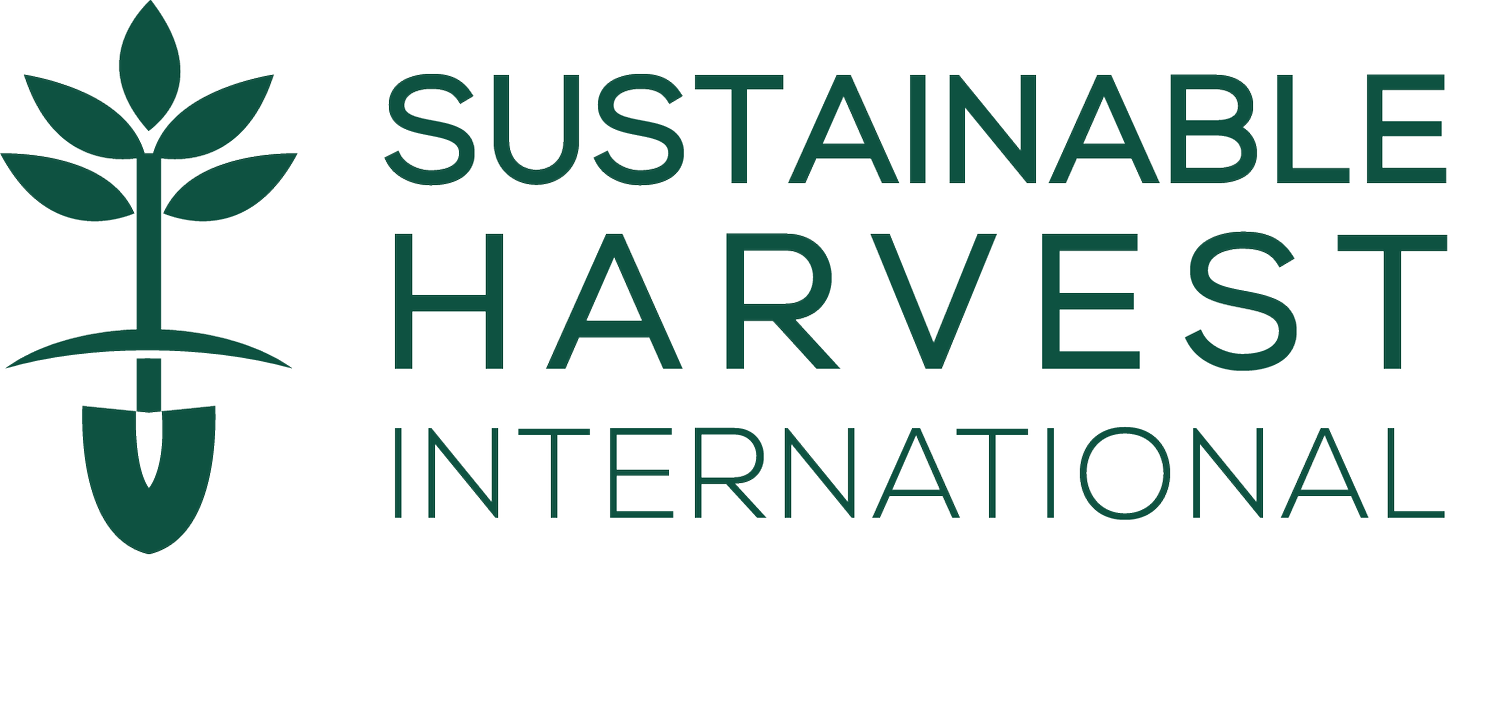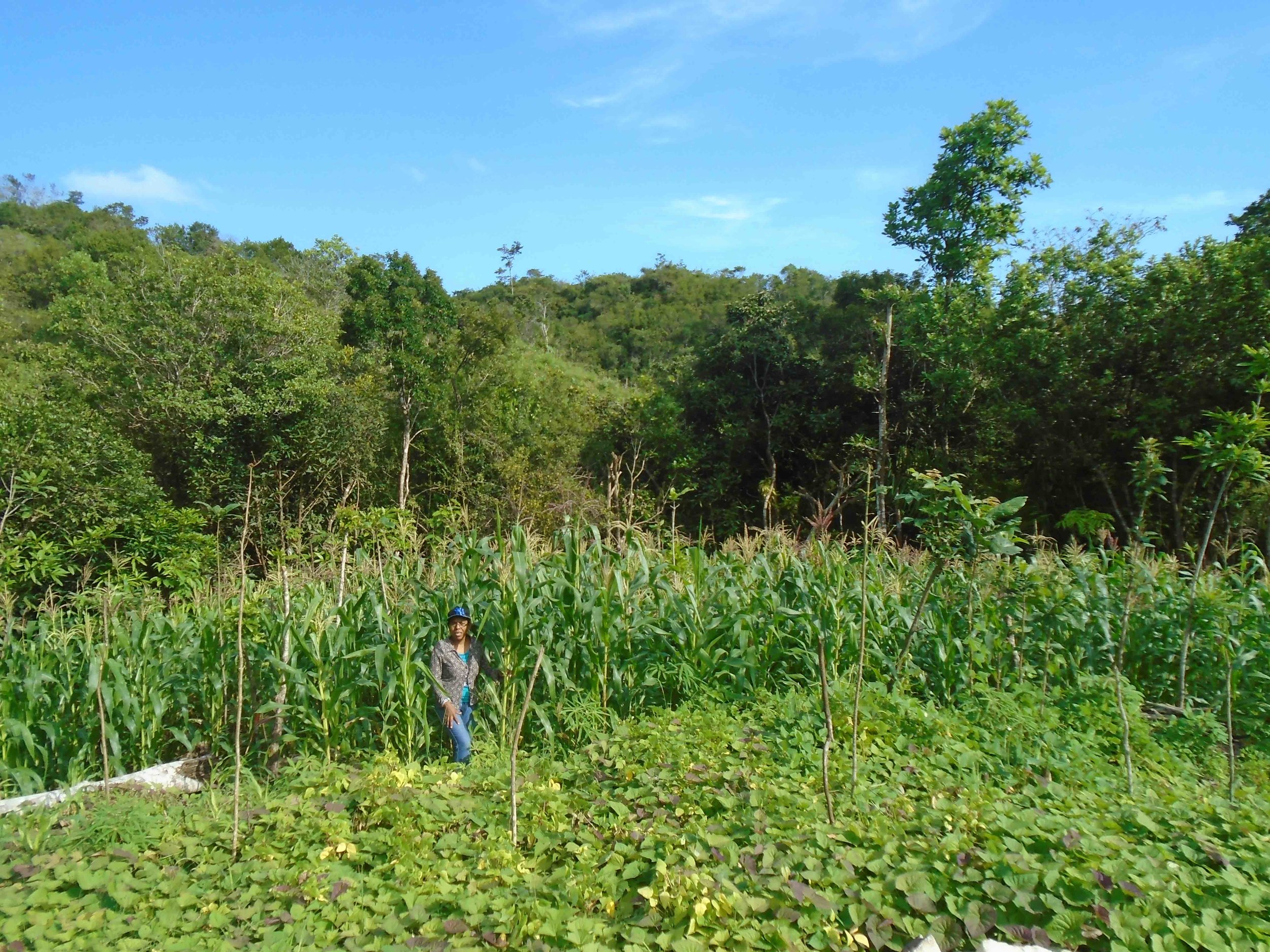LOS ALONSOS, Panama—Nancy Alonso never set out to be a leader in her community. She never even dreamed it was possible for someone like her—a woman from a poor family of subsistence farmers—to have an impact in the lives of others. But our rural banking program opened doors for Nancy, and ensured that when Nancy faced life’s greatest challenges, she still had options for success. Read our latest story in the Changing Lives, Transforming Landscapes series!
FROM ORGANIC CUCUMBERS TO RURAL BANKS
Nancy’s parents began partnering with us in 2004, when Nancy was 29. At the time, Nancy was doing domestic work for a family in Panama City, far from Los Alonsos, where she was born. Nancy visited Los Alonsos frequently, however, and became acquainted with the work her parents were doing. Not only had they switched up their farming methods to be organic and sustainable, Nancy saw that they were also able to support themselves better than ever before.
Though the money she made from domestic work in Panama covered her needs, Nancy decided to return to Los Alonsos because the business side of organic farming intrigued her. In 2008, Small Business Coordinator Dayra Julio began offering trainings on small business development and rural banking. Even though it was her parents who were initially enrolled as partners with us, Nancy attended Dayra’s trainings and became part of the core group that formed a rural bank in her community. The group named the bank La Esperanza—Spanish for “hope.”
RURAL BANKING, DEFINED
Rural banks are collectively run and provide access to credit for individuals living in remote areas. The rural banks that Sustainable Harvest International helps to implement are run by members of the community and offer low-interest loans (micro-credit) and savings services.
Rural banks are uncommon in the communities where we work. What’s more, many rural credit models that once existed are no longer functional. Poor management, lack of follow-up, and insufficient training have resulted in a short lifespan for many community-based financial initiatives in Panama and across much of Central America. La Esperanza, however, remains. Today, the bank has more than doubled its startup capital.
Nancy stands in a field of organically-grown corn and yams. - photo by Dayra Julio
THE NITTY GRITTY
La Esperanza provides a space for farmers to discuss the latest sustainable techniques they’re using, as well as gain inspiration for future projects. Members have used loans to improve land, increase agricultural production, raise livestock, and start small businesses.
In order to ensure that there’s always enough credit in the bank, members implement group projects together. Community income sources include shade-grown coffee plantations, tamale sales, and raffles.
The first low-interest loans granted by the La Esperanza bank were small—between $20-50. Since then, loans have increased to cover bigger projects.
When a neighbor’s house was battered by heavy rain and winds, Nancy and the other rural bank members were able to quickly provide a loan for a new roof. At $300, it was the bank’s largest loan, and made a big difference in the recipient’s ability to recover from damage that could have been devastating.
“The bank has gotten many of us out of trouble on more than several occasions,” says Nancy, who has been elected treasurer three times.
The beauty of a rural bank is its ability to respond directly to the needs of the community. Nancy says that if there were no rural bank in Los Alonsos, it would be much more difficult for community members to undertake projects. In addition, when trouble arrives, the bank provides respite.
Nancy has taken out loans to expand her chicken livestock business. - photo by Dayra Julio
IT’S PERSONAL
Since the La Esperanza rural bank began, Nancy has benefitted from a number of loans. Micro-loans have enabled her to diversify her gardens (she’s now growing coffee, bananas, and yams, using sustainable methods) and raise pigs and chickens to sell. Given the success of these projects, Nancy has been able to pay off every loan in a short amount of time. This enabled her to borrow money to build a house with her husband for their three children.
Nancy is no stranger to difficulty, however. In 2014, she and her husband separated. Not only did Nancy move out of the house they had built together, she also could no longer farm on the land that they had nurtured into a major source of their shared income. Nancy and her three children left their land and moved in with her parents to regroup.
“Anything can be accomplished—it just depends on how badly you want it.”
Such a separation could have ruined Nancy’s chance for an independent, successful, and happy life. Given her business acumen, perseverance, and access to credit through La Esperanza, however, Nancy continues to forge ahead. The rural bank provides her with the financial support she needs to persevere. Her work as treasurer provides her with a sense of purpose. The bank, Nancy says, is the only constant in what has been a difficult few years. It’s provided her with something to work toward—something larger than her.
Nancy keeps meticulous notes to track the bank's loans. - photo by Dayra Julio
Nancy’s three sons benefit greatly from her resilience and ambition—they’re thinking big. Maikol, 19, wants to study aviation. Kevin, 15, wants to join the military. And Jorge, 8, wants to be an engineer. Nancy wants what’s best for her children and hopes that all of their dreams will be fulfilled.
ABOUT THOSE WOMEN…
Here’s the thing: women like Nancy are the backbone of rural economies like Los Alonsos, yet they receive only a fraction of the land, credits, resources, and training that men do.
According to the Food and Agriculture Organization of the United Nations, giving women the same access as men to agricultural resources could significantly raise agricultural production in Panama and throughout the Global South. It’s estimated that investing in female farmers could help an additional 100-150 million people escape hunger.
The benefits of empowering female farmers are not limited to poverty reduction or hunger reduction, however. Economically empowered women are proven to raise healthier and better-educated children. Investing in rural women has been shown to increase agricultural productivity, reduce hunger and malnutrition, and improve livelihoods. And not just for women—for EVERYONE. These benefits extend into future generations.
Because Nancy's businesses are so successful, she easily repays her loans on time. - photo by Dayra Julio
A BANK OF HOPE
Today, Nancy is 41 years old. She’s raising hens and pigs to sell and farming on a new plot of land. She also has a small store. Because her businesses are doing so well, she can easily repay her loans.
Through partnering with us, Nancy has been able to improve her home, diversify her family’s diet, and build financial security. She’s empowered by her leadership role in her community. Her strength provides a model other women and girls in Los Alonsos can aspire to. As Nancy continues to help other families thrive through La Esperanza, she exemplifies the long-term, community-based success Sustainable Harvest International strives for in every community we partner with.
It’s not just credit that projects like the La Esperanza rural bank provide—for rural families like Nancy’s, it’s truly a bank of hope.
Feeling inspired? A donation of $150 can provide a family like Nancy's with a loan to help get an innovative small business off the ground. Donate now.








